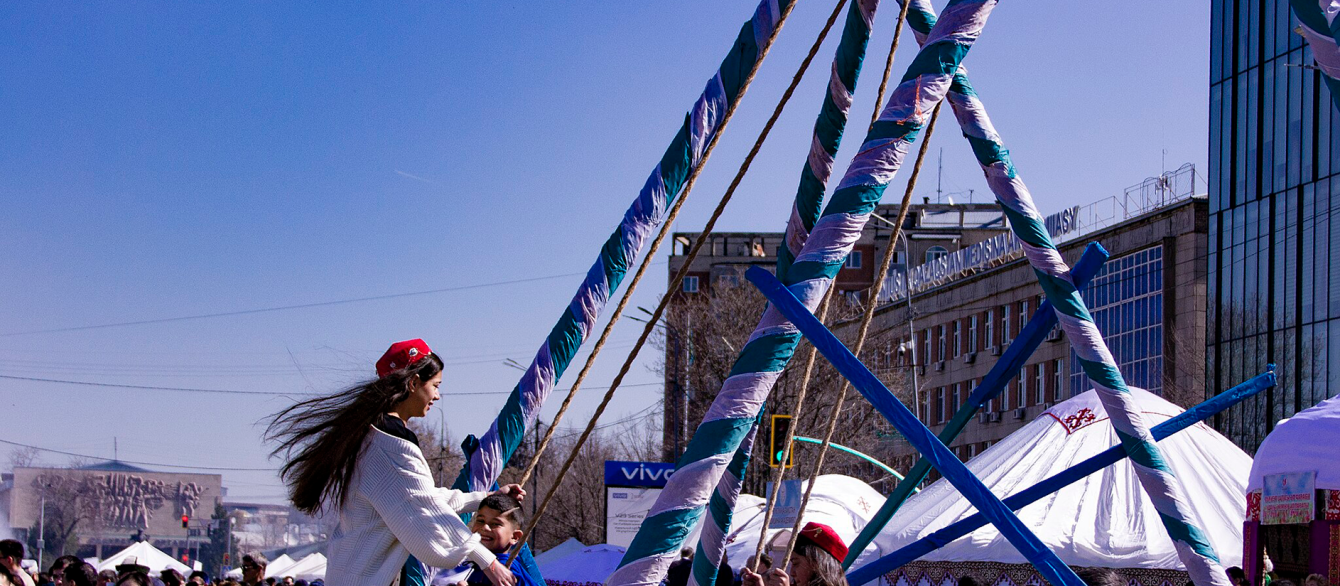Nauryz — celebrated in Kazakhstan each spring on March 22–24 and often known as the “traditional Kazakh New Year” — has a long and fascinating history of transformation. Far from being a timeless ritual, Nauryz has been continuously reimagined through shifting political and cultural contexts. This talk explores how Nauryz evolved from its religious associations in the colonial period, when it was closely linked to Islam, into a symbol of national identity. Despite its official ban by the Soviet authorities in 1926, the celebration persisted in local communities and later reemerged during the late Soviet period, marked by liberalization. By tracing these reinventions, the talk reveals how Nauryz reflects broader changes in Kazakh society — from colonial rule to socialist modernization — and how traditions are reshaped to fit new political and cultural realities.
Accessibility
The Davis Center for Russian and Eurasian Studies at Harvard University encourages persons with disabilities to participate in its programs and activities. If you anticipate needing any type of accommodation or have questions about the physical access provided, please contact us at 617-495-4037 or daviscenter@fas.harvard.edu in advance of your participation or visit. Requests for Sign Language interpreters and/or CART providers should be made at least two weeks in advance if possible. Please note that the Davis Center will make every effort to secure services but that services are subject to availability.




